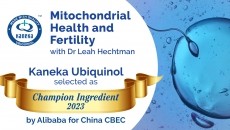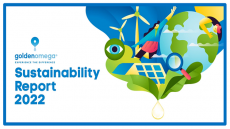Seaweed bead to offer novel encapsulation potential
from red algae, has been identified as a novel new encapsulation
material, researchers from Estonia report.
"Entrapment of [(pro)biotica, and bioactive materials] into the furcellaran beads by protecting them against degradation processes could solve the problem to incorporate health promoting ingredients into food without reducing their bioavailability of functionality," wrote lead author Katrin Laos from Tallinn University of Technology. "It does create a basis for new product development in the food industry." Indeed, with the fear of commodification continuously looming, food manufacturers are turning to microencapsulation technologies as a way of achieving much-needed differentiation and enhancing product value. Tapping into key and emerging consumer trends with innovative techniques is becoming increasingly important for food manufacturers. Changing consumer trends and tastes are primarily responsible for driving innovation in the microencapsulation market, says market analyst Frost & Sullivan. Since food manufacturers constantly monitor such trends, food ingredients companies are always looking for ways to meet these ever-changing demands, thereby promoting the need for novel microencapsulation technologies. One such novel technique could be to use the furcellaran, also known as Danish agar, said Laos and her co-workers in the journal Innovative Food Science and Emerging Technologies. "To our knowledge there is no information about furcellaran as an encapsulation material," they said. To fully investigate the potential of the carrageenan co-polymer, the researchers used sea buckthorn juice - a rich source of beta-carotene. Sea Buckthorn, already very popular in Tibet, Mongolia, China and Russia, is reported to inhibit the oxidative the modification of LDL ('bad') cholesterol, reported to be an important part of the pathogenesis of atherosclerosis (hardening of the arteries) and cardiovascular disease. Beads were prepared by exposing hot furcellaran (AS Estagar) to an ionotropic gelation process. The beads were subsequently dipped in sea buckthorn juice of varying concentrations. During the ionotropic gelation process the maximum firmness for the beads was obtained using a potassium chloride solution, with beads of diameter 4.49-4.89 mm obtained. The concentration of the sea buckthorn juice also affected the firmness of the gels, with the lowest concentration tested (25 per cent solution) producing the firmest beads. Increased concentration was linked to degradation of the furcellaran since the juice was relatively acidic (pH 2.9). Furcellaran is known to degrade at pH 3-4, a property that makes the seaweed extract interesting as a delivery system of bioactives. "The change of pH in the digestive system could cause degradation of the beads followed by release of bioactive materials in the organism," said the researchers. "Beta-carotene content of sea buckthorn juice was 11.5 mg/100 g. While using 100 per cent volume for volume juice for making the furcellaran beads, the beta-carotene content in the beads was 11.12 mg per 100 g, showing that the encapsulation efficiency of beta-carotene in furcellaran capsules was 97 per cent," they added. "The results obtained in the present work show that furcellaran can well be applied as a potential encapsulation material." The researchers called for further work to improve bead stability and release of the bioactives. The research was funded by the Estonian Science Foundation. Source: Innovative Food Science and Emerging Technologies (Elsevier) Published on-line ahead of print, doi: 10.1016/j.ifset.2007.03.013 "Encapsulation of beta-carotene from sea buckthorn (Hippopha e rhamnoides L.) juice in furcellaran beads" Authors: K. Laos, T. Lougas, A. Mandmets, R. Vokk












